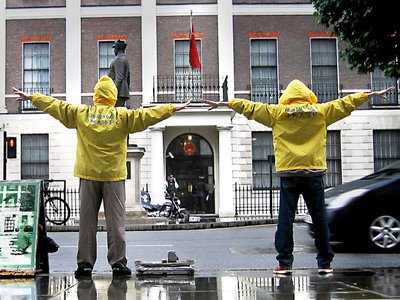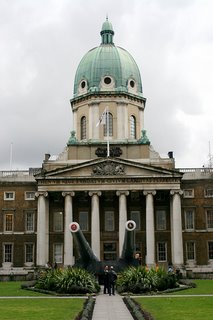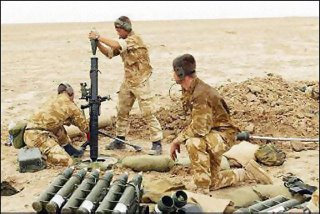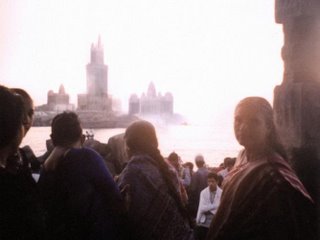Paul Bamborough & Codex:
The Man Who Developed Lightworks
Brings Us The iPod Of Professional Video Capture
by Neal Romanek
(as printed in TVBEurope, Europe's television technology business magazine) I recently had the privilege of getting an hour with post-production pioneer Paul Bamborough at the Soho, London offices of
Codex Digital.
Paul Bamborough was the key developer of the Lightworks editing system. Though
Avid eventually became the industry standard, in a "Beta vs. VHS" style argument, some still maintain that Lightworks was the better system.

With a
Sci-Tech Oscar on his mantle, Paul left the film and video hardware development business for good, leaving behind one "if". If Lightworks developer Delwyn Holroyd had a project in mind, Paul would back it. Holroyd was a key engineer at Lightworks and had developed the company's Newsworks product.
A few years ago, Delwyn left his job as a senior developer at 5D Solutions Ltd. and made the call.
The Project? Design a reliable digital recording system that really worked, across all formats, that was easy to use, and virtually indestructible inside and out. And also why not make it able to record and replay uncompressed 4K video at the touch of a button.
Multiple companies had accomplished any one or two of these goals, but the whole, unified package had yet to come about.
The fruit of their labors is Codex – a shock-mounted RAID-based portable digital recorder with a simple intuitive interface. The name "Codex" sounds high-tech, but the word literally refers to the earliest books, which during the centuries of the Roman Empire, replaced scrolls as the dominant mode of storing the written word.
It was a foregone conclusion to Paul and the Codex developers that hard disks would replace film and tape - sooner rather than later.
"People will shoot everything digitally," Paul said "And it's going to happen quicker than most people think, just in the way it happened in still photography. And when it does happen, I think it'll happen fairly quickly."
In fact, David Fincher shot the feature film "Zodiac" capturing all his footage to a JBOD digital recorder made by Codex competitor, S-Two.
There are echoes of the 1990's transition to non-linear editing systems – déjà vu for Paul. When he first introduced Lightworks to tape and film editors, everyone agreed that it was the future of post-production, and that it was coming down the pike quickly. Still, most editors or post-production companies were unwilling to take the plunge.
Technological adaptation often takes on a herd mentality, which can be smart strategy in an industry where millions of dollars are at stake. A herd provides safety. Decisions are made slowly, risk is diluted among a large number of participants. But when changes come, they are often sudden and absolute. It can become a matter of submitting to the change or getting trampled.
Paul said of those early days at Lightworks: "There was a six to nine month period in which we sold about five machines, but what we did during that period is kept talking to people and we trained a lot of young people who could absolutely see that digital editing was their future. Then quite suddenly people said 'maybe it's time to do this'. We went, overnight almost, from having sold 5 machines to selling 100."
T

hough Codex has been meticulously designed, piece by piece, from the ground up, the technology itself is not revolutionary. "It's putting a bunch of stuff together which, on its own, is fairly familiar. There's nothing particularly new in this, it's just very careful engineering of well-known things."
Inside, the Codex contains a fairly straightforward RAID 3, but it operates at one gigabyte per second bandwidth and is built to withstand extreme conditions of shock and temperature. "We can record just about anything built, and usually at considerably more than 24 frames a second. We can record them at 60 frames a second. We can record two cameras at once. We want to be able to handle whatever is thrown at us. We don't want to be the limiting factor."
I had seen Codex at work at the Axis Films HD camera tests in February, and told Paul that my initial impression was that the Codex box seemed like the iPod of digital disk recorders. The machine seemed simple, intuitive, slick.
"Making it slick is very non-trivial," Paul explained, "Delwyn is just about the best engineer we've worked with. He is very good at making certain things actually work. There's an awful lot of stuff out there that sort of works, but we're trying very, very hard to make what we do actually work in such a way that nobody has to mess with it."
Paul believes the iPod's development is not a bad analog for the Codex story:
"There were a lot of mp3 players around in the late nineties. And they were competing with each other to add more and more and more features, which is exactly the wrong thing to do. What you wanted was to play your music, and it was just this side of impossible to get any of those machines to do it. Then Apple comes along and says: 'Okay, we're just going to make THIS. It's much simpler, it only does one thing. And also we're going to make it simple to operate.' And everybody looked at it and said, 'Yeah! That's what we wanted!' It's not a bad thing to emulate – attempt to find what people actually want to do and make certain you do exactly that."
Once video is captured on Codex it is, literally, immediately ready for post-production. The recorder's ability to output uncompressed video, allows a production team to instantly see its footage in real time, which brings multiple advantages.
Paul illustrated with the story of a recent motion control shoot which recorded its footage to Codex. Several production decisions were made halfway through the shoot which called into question the usability of all the motion control footage previously shot. Faced with the nightmare of having to reshoot everything, it was remembered that a crew member had After Effects on his laptop. A cable from Codex to the laptop allowed a few test composites, at full resolution, and it was confirmed within 15 minutes that indeed the production could go forward. Shooting to any other medium would have demanded reshoots, for safety's sake. "You never need leave a set without knowing whether or not you got what you came to get."
But Codex has no hope of becoming an industry standard until producers, executives, and insurance companies are convinced. It looks as if Codex might be the hard disk recorder of choice for at least two major tent-pole feature films this year, so it is beginning to prove itself on studio lots. How it will work on a location shoot in India, or on the ski slopes of Alps, will be known before too long.
With the changeover to a completely digital workflow, if it isn't Codex that is going to the job, it will be another recorder like it. Though, in truth, even that isn't a certainty.
Paul says, "On the whole, in this new world, very few people know what they're doing. But even more interestingly, they know that they don't know. They will admit it."
Paul Bamborough may be one of the few exceptions to that very rule.
Labels: media production










